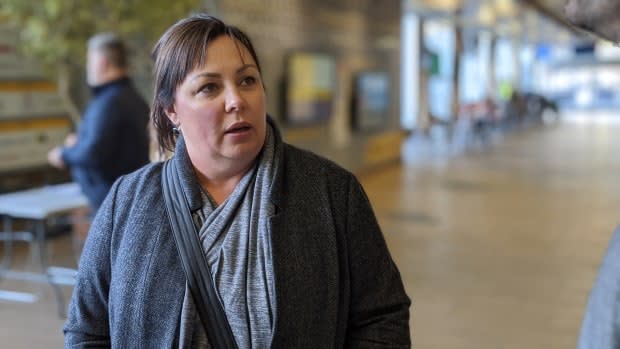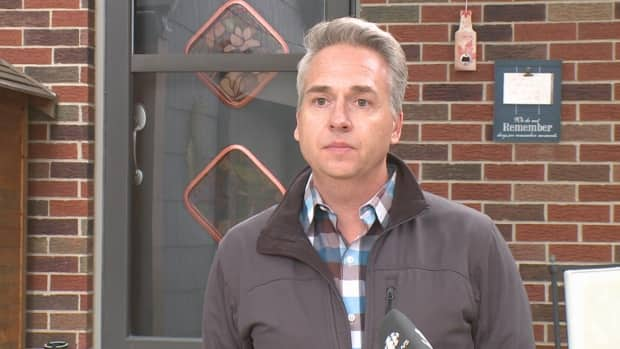Airbnb calls Windsor's incoming short-term rental rules 'regressive and redundant'
Windsor's short-term rental market is going to become more regulated after councillors directed staff at Monday's virtual council meeting to come up with rules for people running short-term rentals and create a draft bylaw by the end of the year.
The bylaw, which has drawn the ire of Airbnb, will have property owners attain a license and follow certain standards in order to rent out their spaces.
Airbnb operator Shannon Dumont says the short-term rental market in Windsor does need some oversight, though she wonders if people will actually comply with the rules.
"Licensing the good community partners is not going to stop what's going on with the nefarious owners ... so even if I voluntarily pay the fee or no fee or whatever it is, that's not going to stop the guy who's not getting the license," Dumont told CBC News.

She says the city needs guidelines for short-term rentals but is skeptical on how the city will enforce the rules it is looking to adopt.
"I'm eager to see what that draft by law is actually going to look like ... I hope that council will take into consideration that we are not Toronto, we are not as big as Toronto, but we also do need some kind of overseeing because I do find that there are some nefarious short-term [rental] owners out there," she said.
Ward 6 Counc. Jo-anne Gignac first introduced the issue to council back in 2017 and brought the draft bylaw motion to council Monday.
Gignac said the city will follow up on any complaints they hear within the community of someone who doesn't have a license and is operating a short-term rental. If that happens, Gignac said that person will be operating illegally and there will be follow-up.
"It's a start," she said of the motion passed Monday. "It will come back to council in a draft proposal [and] if there are components that councillors would like to see added to it, that will be our opportunity to do so."

City doesn't want 'ghost hotels'
Several Ontario municipalities have already implemented short-term rental regulations, including Toronto.
In order to understand the issues around short-term rentals, Windsor conducted in-person and online surveys to get feedback from residents. Based on that feedback, and after exploring models adopted by other cities in Ontario, the city decided to follow the rules set by Vaughan, just north of Toronto.
Vaughan's regulations say:
Short-term rentals are permitted in most housing types.
Annual licenses are required for short-term rental operators and are also issued to online platforms such as Airbnb.
Short-term rental operators must obtain a vulnerable sector police record check.
Owners must provide proof that the rental is their primary residence.
Owners must obtain and maintain a $2 million liability insurance policy
The rental must comply with both the building and fire code, with operators confirming and signing off on the licence application.
Owners must allow any inspection of the rental deemed necessary by licensing authority and designates during reasonable hours, with no hindering or obstruction to these inspections.
Windsor would like people to provide proof that the rental is their primary residence to avoid "ghost hotels," where a house is being used for short-term rentals but the landlord or operator is not around.
Councillors also discussed if there should be a month-long cap for how long a person can stay in a short-term rental.
"A person should be allowed to stay longer, but it is the operator's choice and decision if he or she will accept longer than 28 days," Airbnb operator Raymond Quenneville said at the meeting. "But I do hope the councillors do take the time to maybe experience an Airbnb or visit one so that they can understand our needs and what we're trying to achieve."

Rules will have 'negative impacts,' says Airbnb
In a statement to CBC News, Airbnb public policy manager Nathan Rotman said the company is working with municipalities across Ontario, including Windsor.
"The draft bylaw that Windsor City Council has decided to pursue will have negative impacts on the visitor economy and local hosts," said Rotman, calling it a "regressive and redundant approach to regulating home sharing."
"We know that the majority of Airbnb hosts are regular people sharing their residential homes a few nights each month in order to help make ends meet. Now that Canadians are looking for more ways to explore the country, Airbnb can positively impact growth in tourism markets across Ontario and offer travellers more choice."
Gignac anticipates that a draft bylaw will be presented to the city by end of this year or early 2021.


